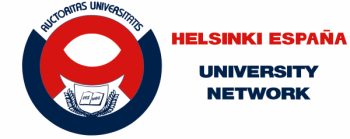
Mar 26, 2021 | Employment guidance and social collaboration, Human Rights, Sustainable Tourism, Youth to Youth
The Camino de Santiago is an experience that, as in the past, traveling or pilgrimage, becomes a means to obtain knowledge, moments, being also an adventure of personal transformation in itself where values such as freedom, trust, solidarity or the effort to achieve a goal. For this we must bear in mind that the person who walks has all the time in the world, is free to spend hours visiting a town or going around a mountain, following the course of a river or going up a hill, after which they end up looking at the horizon the towers of the Cathedral of Santiago.
With the Team Innovation 2021 Project we seek to create an interuniversity debate that revolves around issues that are on the order of the day such as the 2030 Agenda, Human Rights and Sustainable Tourism, shaping possible responses in view of the future of the Camino de Santiago itself. Where is the Camino de Santiago heading? Trying to answer this question is part of the collective work among young university students who participate by contributing their experiences both in the online study process, as well as in the actual completion of the Camino de Santiago, where they will share moments along the way and in the shelters, culminating everything the process in a university forum at the University of Santiago de Compostela in which the knowledge found and the possible practices that can be carried out in the Future of the Camino de Santiago are transmitted.
But beyond the critical knowledge that the students acquire, they also gain in a personal feedback between the nature that surrounds the Camino de Santiago in its different stages, the local communities through which they travel and the cultural-historical heritage of which they are Can enjoy. All this is intertwined in the own person in a formula of knowing oneself.
A colleague who participated in previous editions commented to us:
“The experience of the Camino was what taught me the idea that the difficulty of being away from our homes and everything that we see as something normal in our daily lives, that feeling of finding ourselves as strangers in unknown places, to see in the faces of some an attitude of fear or indifference and the opposite, to receive the hospitality and solidarity of the people almost daily “


Feb 16, 2021 | Employment guidance and social collaboration, Youth to Youth
A volunteering project organized by Helsinki-España, in collaboration with Ayuntamiento de Madrid, where you will receive training in Human Rights by the hand of experts in order to attend to schools and raise awareness among the students through a participatory methodology.
Training starts in March (22th to the 26th in Asturias) (15th to the 19th in Madrid). Join us and participate!!
Contact us at helsinki@helsinkiespana.org or sign up her.
If you are interested, you can check more information in Youth to Youth.



Dec 11, 2020 | Employment guidance and social collaboration
The tourism sector in Spain is of great importance, as pointed out by the general director of Turespaña, Miguel Sanz, also characterized by being a source of income for women, since they participate more actively in it. Thus, highlighting the statement and according to the Active Population Survey (EPA), male hostelry workers reached 6.9% in this third quarter of 2020, while women stood at 8.8%.
Consequently, and with the arrival of COVID – 19, unemployment has increased in this sector, with barely visible advances that may suggest that the situation has improved. There has been an increase in the unemployment rate in tourist activities by 17.3% in the third quarter of the year, in the middle of the high season, compared to 10.7% in 2019. This represents a great decline in the achievements until the moment in which the pandemic has arrived, thus slowing down the empowerment of women in the tourism sector and all the opportunities that were offered to face equality between the sexes, something that in the words of the World Tourism Organization is a clear factor that produces a great multiplier effect on employment. Alessandra Priante, director of the regional department for Europe of the World Tourism Organization (UNWTO), has stated that it is estimated that in Spain the situation of tourism prior to the arrival of COVID – 19 can be reached in the best of cases by the end of year 2021 or early 2022.
Although few women have recovered their jobs or have gotten one, the vast majority of them find themselves in a situation with no way out, the impact on their economic conditions being a ruin and, already emerging as one of the great affected by the implications of the coronavirus crisis. That is why Carlos Garrido, president of the Spanish Confederation of Travel Agencies (CEAV) has clearly shown that this crisis is and will be the crisis of tourism.
Due to this fact, the IMPETU project “Impact of the Pandemic on Tourism in Spain: Implications for the Employment of Women in a Female Sector” arises, coordinated by the Complutense University of Madrid, and in which researchers from the University participate from Seville, Polytechnic University of Valencia, Francisco de Vitoria University and ESIC, in addition to our entity, Helsinki España, has been selected by the Supera Covid-19 Fund financed by CRUE Universidades and Banco Santander.
In this way, IMPETU will focus on women whose work activity is linked to the tourism sector and who, due to the pandemic, has been reduced or damaged. In addition, Helsinki España will offer a career orientation course to 50 young women between 21 and 30 years old who have graduated in Tourism and who, nevertheless, are in a situation of unemployment.
.








